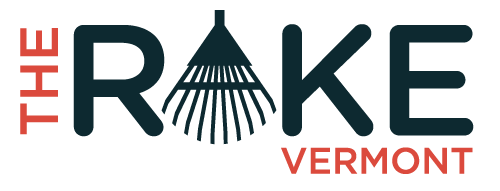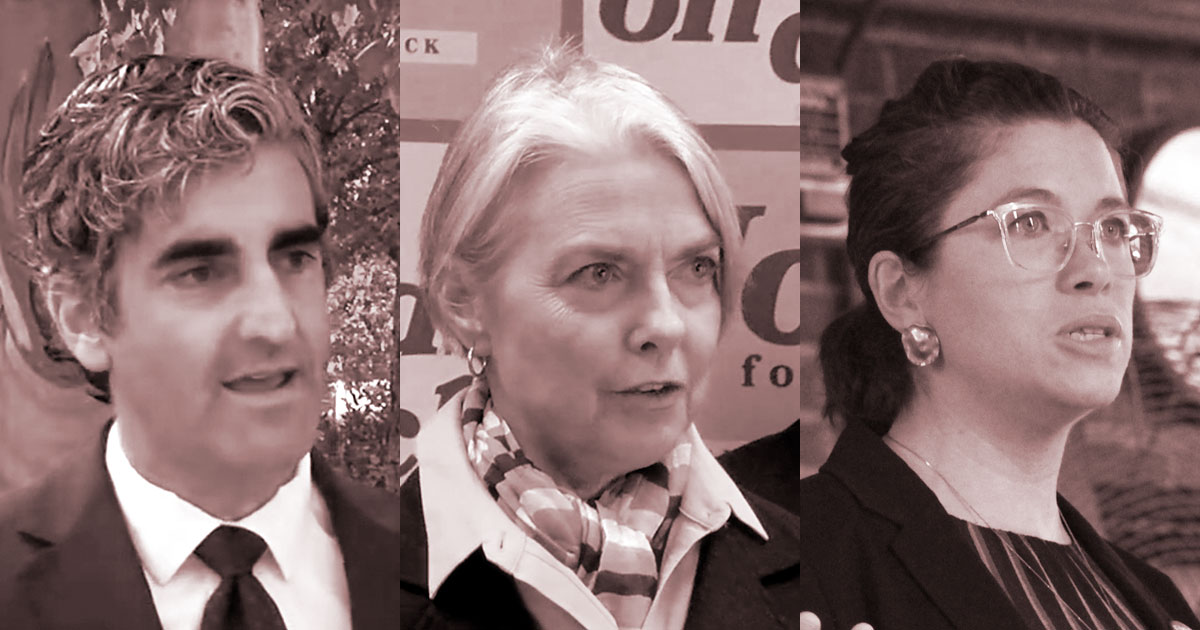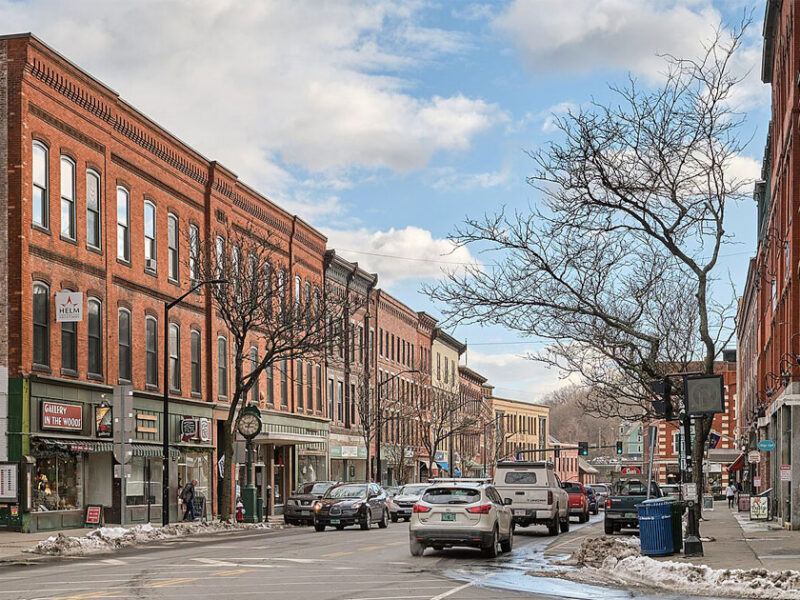Political life in the city of Burlington leaves a lot to be desired. The forces of big money are laying siege to our homes, schools, hospitals, public spaces, and social expression. Like vampires, the insular cliques of entrepreneur groups intrude into our communities and suck out the social surplus. They monopolize every aspect of our lives and raise the rent. They attack us with their ideology to sanctify their exploitation.
The result? Crisis and confusion. Locals are priced out to make way for lucrative short-term rentals. They are forced onto the streets in a state with already the second-highest rate of homelessness per capita. An unaccountable police army roams the streets with no oversight. A deep feeling of dissatisfaction with the city’s aversion to addressing the real trouble we’re in.
Burlington’s issues are a byproduct of the community’s political problems.
Miro Weinberger, who sat in the mayor’s post for twelve years, announced in September that he won’t seek reelection. Weinberger contributed to this crisis, running cover for the speculative capital as Bürgermeister of Burlington, a friend to power. Now, he flees for the glamor of higher office, and potential successors line up at the pitch to replace him: Emma Mulvaney-Stanak secured the Progressive nod on December 6th, while Joan Shannon defeated Karen Paul and CD Mattison in the Democratic caucus on Sunday.
In our municipal context, the mayor wields a considerable amount of power, including being able to veto the initiatives of the city council. At every turn, potential solutions have been blocked on behalf of powerful money interests who wish to continue reaping. Weinberger’s function has been to suppress the city’s ability to defend itself against property speculation and money-flipping.
Come March, on Town Meeting Day, we will be faced with a decision: which prospective mayor would best protect the city against the storm of unbridled exploitation?
However, the problems of the city are unlikely to be solved with a new ass in the mayor’s chair, so to speak. Instead, we should consider that the role of the mayor itself generates social problems and explicitly prevents the population from addressing the issues that bedevil us. With an eye for democratic life, we can identify that the office of the mayor is a political monopoly, which prevents the people of Burlington from finding solutions to these critical problems.
It begs the question, why do we even have a mayor, anyway? It didn’t used to be this way at all.
Flashback: A Strong Mayor Born of Capital
Before Burlington had a mayor, it was a town hall village, a directly democratic system where the legislative process was open to all residents — this is not an exaggeration. The Anglo-Yankee Puritans, the settler-colonists of the Green Mountains, had radical religious beliefs: they elected their ministers and met to discuss administrative matters in their place of worship. Vermont’s free-thinking and egalitarian town hall system comes from the Congregational church’s political function. This system still survives in the small towns around New England as a relic of a more heterodox time in American political thought.
But during the nineteenth century, as Burlington (as a lumber port and manufacturing hub) began to explode in population, obscene concentrations of wealth spawned new social classes, and the function of its direct democracy became a liability for the powerful men who were harnessing the new system of big-money capital.
New populations came from the mass immigration of Irish and French Canadians seeking work in the new industrial-factory behemoth. The big men Yankees of Burlington were frightened that the new arrivals were (1) Catholic and (2) working-class.
As a town hall village, Burlington was only a meeting place, the sum of its residents. It was not an entity that could borrow or possess property on credit. To channel the huge flows of money towards municipal improvement that the new industrial population required, it would need to incorporate!
For the businessmen, a powerful mayor to protect their interests (and who was beholden to them) was the order of the day!
Like elsewhere in the factory cities of New England, the powerful men undertook efforts to centralize politics. A mayor would become the city figurehead and hold final veto power over the “lower” city council. The business leaders published propaganda, describing town meetings as “turbulent” and “like Babel.” Instead of an engaged public, they wanted control. They wanted a polity where big-money capital would be welcome and protected above the interests of the people.
Of course, the poor Yankee and Catholic population wanted to retain the town hall democracy. They recognized that reducing the direct democratic system to a city charter would take away their voice, and they would have no participation in city matters.
The Burlington Times described the supporters of [city] incorporation as “large businessmen, those who have invested capital in our village, and by a liberal outlay from their own purses secured many of the improvements we have had. They are the men who are foremost in every charitable enterprise and anything which will do credit to the town and increase its population and wealth … Under a city organization, more capital will be drawn hither and larger enterprises than we have yet amongst us inaugurated.”
Opposition was led by the outspoken Catholic priest Jeremiah O’Callaghan. In 1853, O’Callaghan wrote with some fervor that Burlington “had lately a fortunate escape from a vile faction of idlers who made a desperate attempt to get our village incorporated with a Mayor, Aldermen, Recorder, twenty policemen, and several other officials, together with a vast number of by-laws and ordinances, for the exaction of heavy loads of fresh taxes.”
On the other hand, the city charter did allow a particularist governance, distinct from the general law of Vermont state legislature; it would protect Burlington’s local autonomy. New legal recognition enabled the new city to have greater flexibility in its affairs: render its taxes, possess and alter property, borrow money for large improvements, issue bonds, and build capacity for governance. Giving the municipality more political rights is not a terrible thing!
Efforts to incorporate were an uphill battle. The city charter failed in 1851 and 1852, but in 1865, it passed in a referendum. Burlington could address some of its most pressing needs, but mo’ power, mo’ problems, and the mayor could always work against the city they were elected to manage.
The problem becomes clear when we look at the original language: “the administration of all fiscal, prudential, and municipal affairs … shall be vested in one principal officer, to be styled the mayor.” The mayor was imagined as a chief executive, with his council and departments as “subordinate officers” (treasurer, clerks, etc).
Of course, in the original intentions, the mayor was to be elected annually. The true problem is the undemocratic position: the impetus of this new local power in the hands of one person!
The purpose of the city bureaucracy and mayor remains: to take away the voice of the people in the neighborhoods, by the creation of a special civic office that power, money, and influence can manipulate with ease.
One-hundred and sixty years on, the office of mayor is still creating social problems that can hardly be overcome; veto power remains in the hands of one person, while the executive privilege is monopolized in a single office. The fate of our municipal life is still decided behind the closed doors of a city hall, away from the neighborhoods and forums of popular debate.
Social Problems Created by the Office of Mayor
1) Scant accountability. The mayor is unrecallable, so their decisions cannot be challenged between election seasons; familiar to electoral politics, this creates the dynamic of sculpting public opinion, as opposed to genuine democracy, and hucksterism to bury inconvenient and unpopular decisions mid-term so that they can be forgotten by Town Meeting Day.
2) Local priorities are not met. The mayor has the unilateral power to enforce actions that are unwanted on the city population and ignore those petitions that are presented.
a. The demand for community oversight of police was vetoed by Weinberger in 2020, and that same year he vetoed ranked-choice voting.
b. Weinberger attacked the Sears Lane Encampment, dispersing its residents to accomplish the final leg of the Champlain Parkway project.
c. In the midst of our ongoing housing crisis, the mayor’s office issued a veto of the short-term rental regulations supported by the city council. A watered-down version was passed in 2022.2
3) Lack of Plurality and diversity in decision-making. The strong power of the mayor within our municipal system and the concentration of relative power within a single figure is a grave mistake for a people to make who ostensibly champion democracy. A single person cannot account for the manifold interests of a diverse neighborhood whose needs are cultural, political, and moral.
Putting the issue more boldly, the mayor is corrupted by their elevation to power and beholden to those who funded their ascent. To win and beat out the other competitors requires marshaling large sums of money and media effort. The mayor is compromised by their debts — favors owed to unelected (and unknown persons) will be called in — turning our mayor-council system into a diabolical and undemocratic farce.
The mayor still serves the old function as a conduit between the city and the skyward flows of credit capital. As witnessed, the mayor’s primary ally is the police gang, who pacify the streets, inflict the law regime, and open the city for abuse by money power.
On the other hand, Burlington has a distinct (but limited) history of progressive mayors who worked towards protecting the interests of the neighborhoods and aiding their prosperity.
James Edmund Burke was elected mayor four times between 1903 and 1935 and took the side of the workers and immigrants against the Yankee businessmen and their money. Burke reformed the city police and launched investigations into their conduct. He fought the local Freemasons to deny them tax-exempt status. The municipally-owned Burlington Electric Department was likewise founded on Burke’s initiative.
We’re also familiar with the tenure of Bernie Sanders, who ran under the slogan, “Burlington is not for sale,” a sentiment many yearn for today. Sanders revived the Burlington Progressive tradition, but to survive today, it needs critical reimagining.
There is potential for the mayor’s office to become a political bulwark against the predatory nature of capitalism, but equally likely is that an “investment Democrat” will seize control.
I, for one, do not care for a political reality dependent on the crapshoot of elections. Justice and democracy and eliminating the pockets of monopoly power in our city seem a much more reliable approach.
In an ideological sense, how can we claim to value democracy when our figurehead, our head of the city, is one person instead of a deliberative body? This affects our mentality: instead of encouraging direct participation, it invites us to become passive and hopeful, that we should pray for someone to come along who treats us right.
Potential Solutions
We should transform the mayor’s office to represent our values and aspirations better. There are two directions here:
1) Abolish the office of the mayor! The mayor is a figurehead, and their administrative duties could be accomplished by other persons who do not hold veto power or executive oversight over the city council. The council itself should be expanded, with multiple councilors representing each ward. The center of gravity in Burlington politics should be with the city council. In the most vulgar interpretation, the mayor’s office is an appeal to strong leadership, an anxiety in the American soul of the plebeians getting their way.
2) Stuff the office! Instead of one mayor, we could democratize the office by having two co-mayors. Known as dual leadership*, this form has been used with success in Turkey and Syria. In this scenario, we would elect co-mayors (at least one must be a woman, in the tradition of political feminization). This creates a dynamic where the responsibilities of the mayoral office must naturally derive from a consensus decision. This would fortify the democratic attitude of Burlington and serve as a model for politics going forward: “Open up the monopolies, and govern by consensus!”
Either of these options would be a gnarly blow against the monopolistic requirements of power capital and rejuvenate the tradition of political debate.
When it comes to political office, go double or nothing! Eliminate it or dilute it, but never let it go uncriticized. No to monopoly, yes to political life!
* for a detailed explanation of Dual Leadership, see Knapp, Michael, et al. Revolution in Rojava Democratic Autonomy and Women’s Liberation in Syrian Kurdistan. Pluto Press, 2016. section 5.5, Dual Leadership (hevserok) and the 40 Percent Quota.

Liam CZA Noble is a Burlington-based writer and researcher interested in world-systems, social ecology and democratic confederalism.



